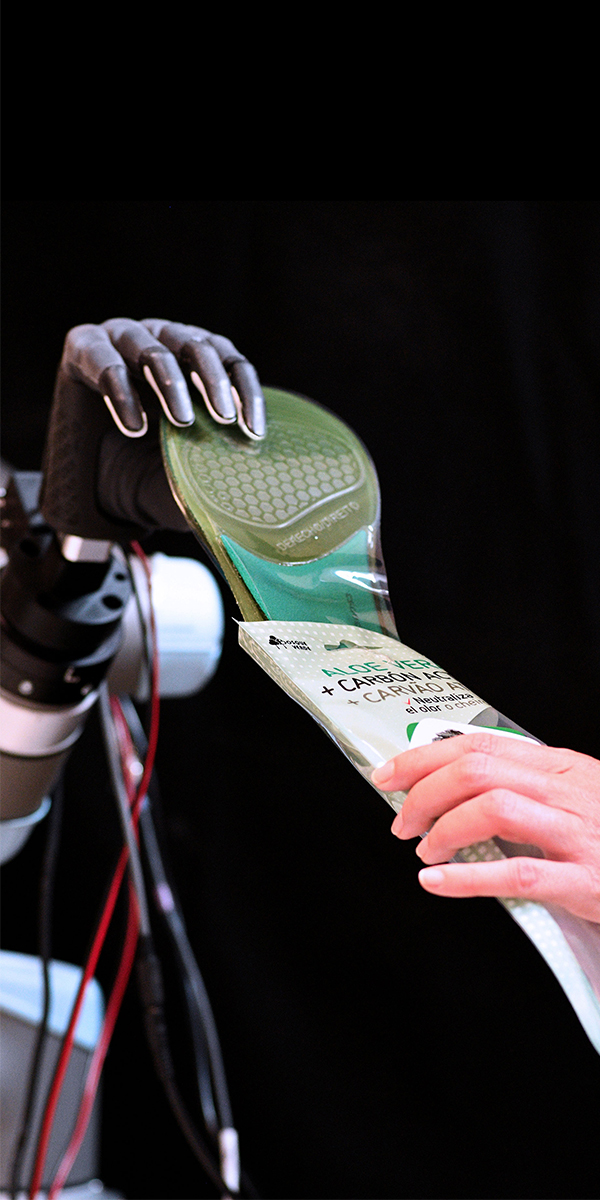Summary & Figures
Why APRIL?
Robotic technologies have been rapidly evolving in the past years, creating a revolution in manufacturing and enabling the transition to a flexible, digitalised and demand-driven production. Key trends that allow for increased flexibility and more customised manufacturing are:
a) smart sensors and the adoption of Industrial Internet of Things (IIoT) Technology to collect previously inaccessible data;
b) integration of Big Data analytics;
c) use of Open Automation Architectures for improving automation and compatibility;
d) increasing use of collaborative robots, or cobots, working safely alongside humans.
These trends allow APRIL to propose a cost-effective solution to manufacturing and processing soft and flexible materials—a notoriously difficult task in robotics engineering.
Soft and flexible materials require highly adaptable manipulation, precluding standardised approaches. Heterogeneity and deformability of products mean that shapes are not homogeneous and may change during or due to manipulation.
Challenging robotics engineering, the APRIL is developing prototypes that allow handling various materials and processes in manufacturing sectors as varied as electrical appliances (SLVR), food (ASIN), viscoelastic materials (PEMU), insoles (INES), flexible circuits (OSAI) and passports (INCM).
For more details, read the APRIL Objectives.
For a quick overview, download the APRIL project brochure.

Figures
STARTING DATE: April 1st, 2020
DURATION: 48 months
FUNDING: ~ 8 mln €
NUMBER OF PARTNERS: 14 (from 7 European Countries)
GRANT AGREEMENT: 870142
